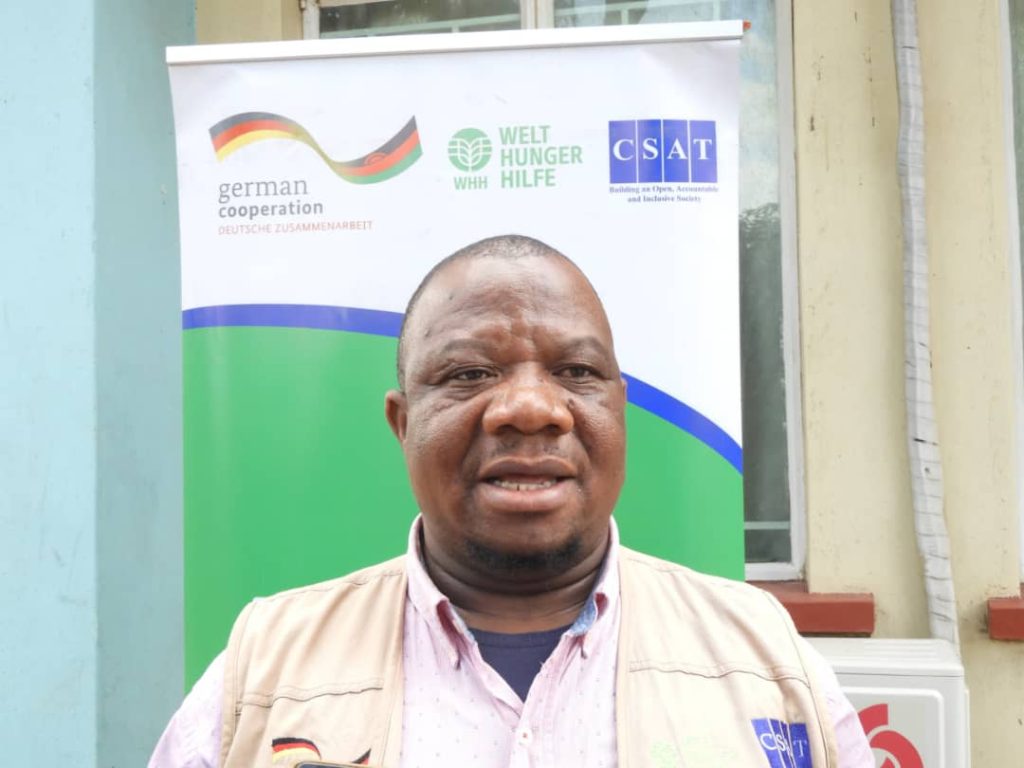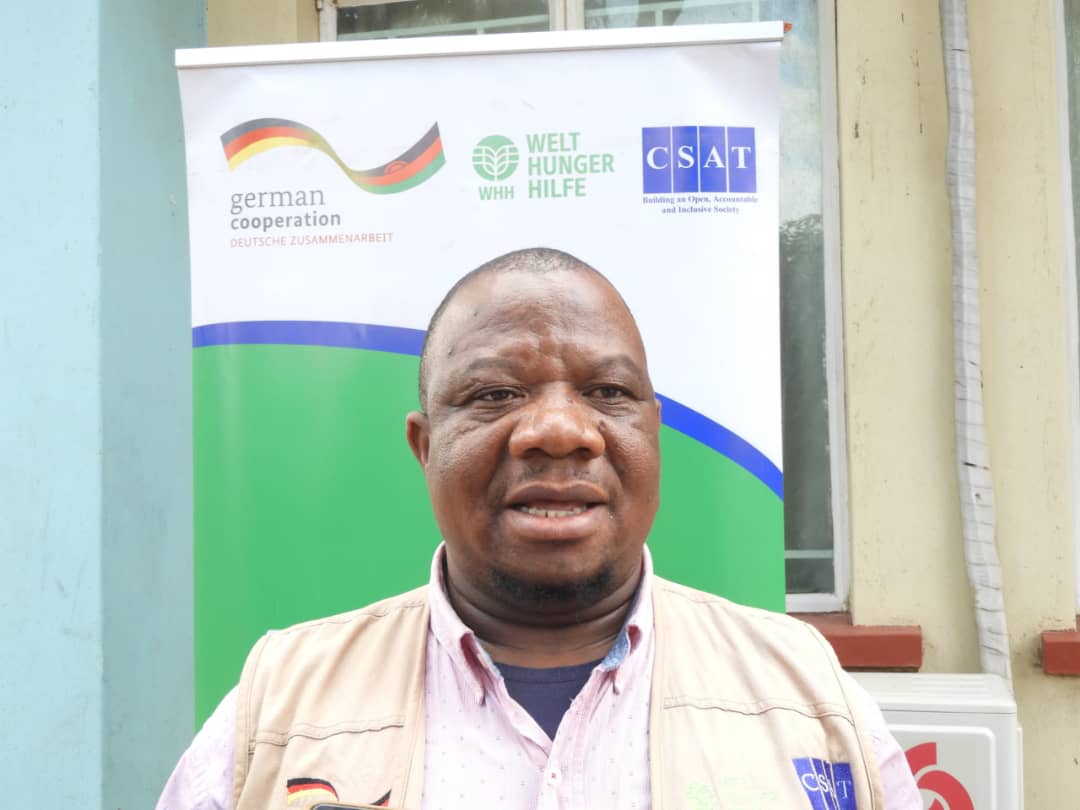By:Francis Polinyu Banda

Member of parliament for Mangochi North constituency Benedicto Abel Chambo says poor road network to his area is a challenge to the implementation of the right to food policy,as people in his area rarely access food during lean periods.
Chambo told AfricaBrief Sunday July,21 2024 as phase one of the right to food project implemented by the Center for Social Accountability and Transparency (CSAT) in traditional authority Lulanga in his area goes to end awaiting phase two begining September, 2024.
He said most of the time people in his area fail to access food on time when hunger strikes as a result of poor road network and has since asked the civil society organisations to engage more stakeholders in the implementation of this policy as government plans to iron out communication problems in the area.
“The implementation of the right to food project in my area is a welcome development but I must say that people in my area do not access the food on time in times of need due to poor road Communication.As government we try to reach out to people with food in times of need but the food,in most cases reach people when they are not in dire need for assistance.This is a gap to the right to food policy implementation on its own”,Chambo said.
The parliamentarian has also asked civil society organisations to always engage local leaders during project implementation,and has since commended CSAT for the right to food project it is implementing in his area.
“Let me take this opportunity to ask all organisations working in my area to always engage us when implementing projects.This will help us to know the gaps and share ideas on how best we can sort them out.As CSAT plans for the next phase of the right to food project,my expectation is that stakeholders will also be engaged so that they are able to complement what is being done,”.He said.
CSAT project coordinator Moffat Mpweya Phiri said knowledge on the right to food policy is among the crucial steps in dealing with food crises and malnutrition Malawians experience almost every year.
Phiri engaged journalists recently in Mangochi to orient them on how they can relay the messages concerning the policy to the public.
The meeting was organised as phase one of the right to food project funded by the Germany organisation and WHHE implemented by CSAT and the Civil Society Agriculture Network (CISANET) in traditional authority Lulanga goes to an end awaiting phase two.
Phiri said when duty bearers and citizens know the country’s policies on the right to food, they will be able to know their duties and responsibilities in line with the access to the food for the citizenry and when to demand for it in times of need respectively.
“There are times when government food reserve agencies have the food meant for citizens to access but officials in those agencies do not utilize the right to food policies for the food to reach the intended targets who are Malawian citizens in this case.Equally,there are times when citizens do not know that they have the right to ask for the food from their government and agencies using the established policies.This is why CSAT though it necessary to fill this gap by engaging the media so that they are able to inform the citizenry through their reportage to fill this information gap which exists”,Phiri said.
Phiri also hinted that in most cases food, especially maize from government food reserve agencies like Admarc is purportedly sold to vendors, making it difficult for citizens to access it at an affordable price from those depots because what matters to the officials selling the produce is making business for the government, thereby forgoing the need for the food to be readily available for poor Malawians at an affordable price.
This,he noted, is a result of poor implementation of the right to food policies and the knowledge gap which exists between citizens and at times duty bearers themselves on these policies.
“Issues of food being purchased by vendors from government food reserve depots have become common because what officials from those depots know is to sell the food and produce receipts to government for auditing purposes,disregarding who is going to access it as the end user.
Most Malawian citizens starve since vendors who buy the food from public marketing agencies resell it to the people at an exorbitant price,making it difficult for people to afford it”,He said.
He said CSAT is implementing the right to food project in T/A Lulanga in Mangochi inorder to impart knowledge to people there on their right to demand the food when need arises using the established national right to food policies.
So far,CSAT says as phase one of the project draws to an end people from T/A Lulanga are now able to demand the food from their duty bearers during the times of need and engage duty bearers to intervene when their demands are not met.
